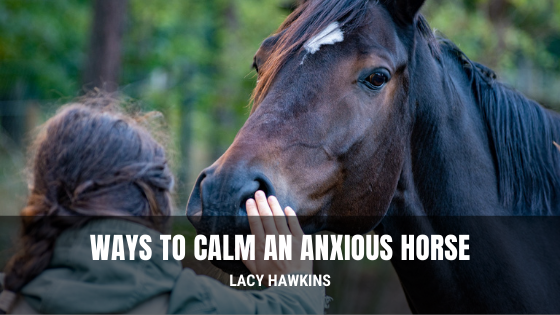Because horses are prey animals, they naturally become anxious and are ready to run or break away and flee, unlike dogs, common pets among the predators. Horses will start at things large and small, significant and insignificant. Equine anxiety is the prime issue in the training and management of horses. Regardless of what frightens their horses, riders must be ready for the situation and not allow these animals to get out of control. There are several actions that the riders can take to relieve the anxiety of their horses:
Determine the extent of the horse’s fear
Sometimes the horse is simply using an object, such as a plastic bag caught on a branch, as an excuse for misbehaving or getting out of work. (Horses are among the top ten of the most intelligent animals, so owners should be alert to the motives for misbehavior.) If they are playacting, the rider should ignore the behavior and urge the horse to continue. However, if the horse has genuine fear, the rider should determine the cause and how best to work with the horse to overcome such fright. Since many horses are afraid of particular objects, leading the horse to a disturbing object or lunging the horse near the item are ways to calm it.
Do not ask too much of the horse
When working with a nervous horse, riders can reduce the animal’s stress by recognizing what it can and cannot do. Establishing limitations on the demands of the horse will calm it. Within these limitations, the rider should work on making the horse comfortable and confident. Then, it will be much more likely to respond as the rider wants.
Use aids that are precise
Riders communicate with their mounts by using pressure on the bit, the crop, or the use of body language. While it is essential to be consistent with these aids, it is equally important to be consistent in their release at the right time. By doing so, the horse will come to understand the rider’s messages.
Be someone reliable
Being a consistent rider and using the pressure-release method to encourage the horse to relax helps calm the horse and inspire confidence. Rewarding the horse’s good work consistently inspires his confidence and motivation to respond appropriately.
